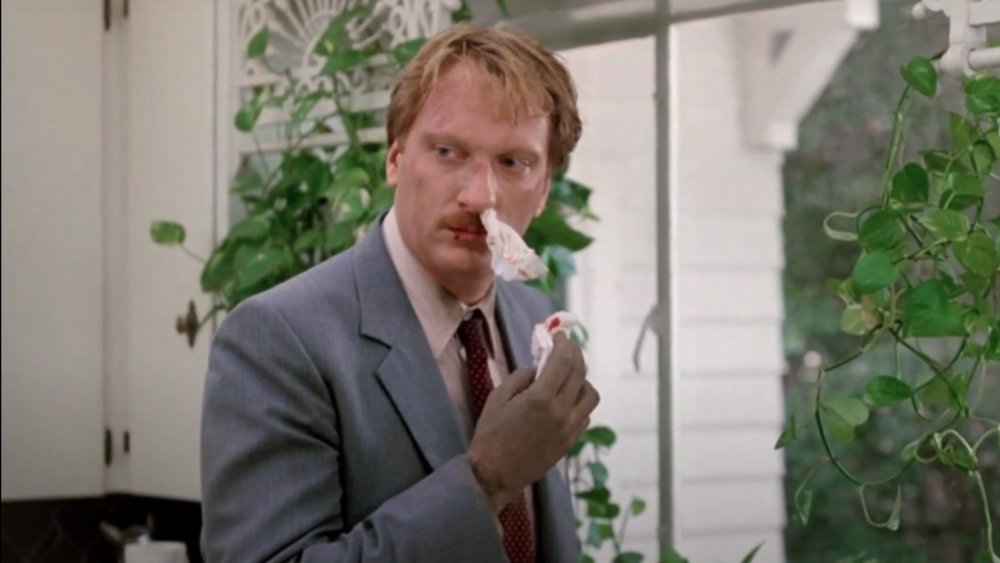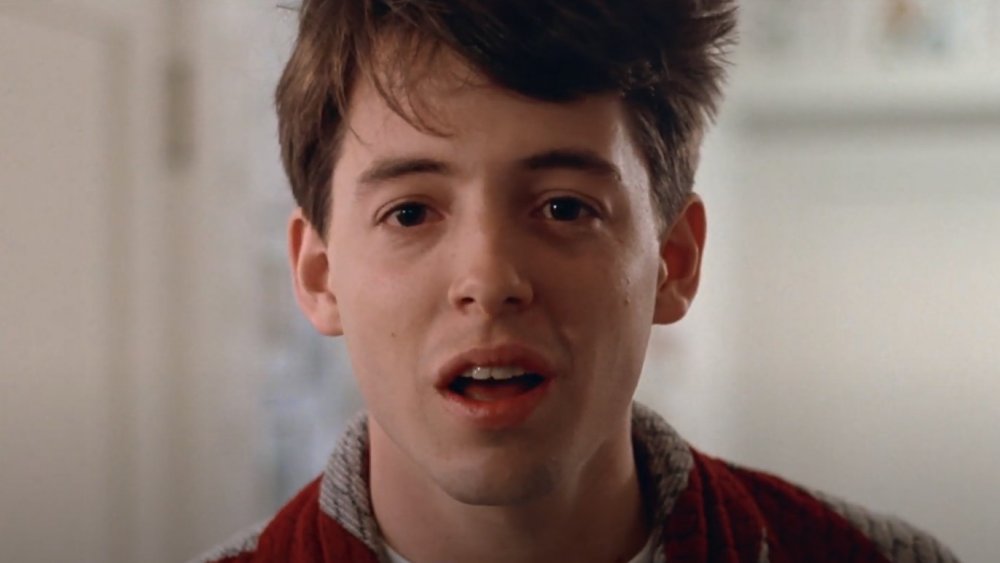Why The Villain Of Ferris Bueller's Day Off Wasn't Actually Principal Rooney
Think back hard enough, and there's a good chance that you'll remember your high school English teacher talking about Lord of the Flies, and specifically the constant struggle between Civilization and Savagery. Ironically, the only reason that they ever had for bringing this up in the first place was that they plagiarized their lesson plan. There's a larger moral to be taken from this.
Over and over again, works of film and literature tell the same story — the story of a line, drawn in the sand, separating the proverbial city from the rhetorical shadowy wilds. As a general rule, one person stands sentinel, ready to step across the line if need be; someone with the perspicacity to understand that morality is a luxury, financed by society's willingness to abide by accepted standards of behavior each and every day. In Jaws, all-time great movie antihero Quint guards the gates of Amity Island, willing to kill if necessary. By the ending of Avatar, Jake Sully stands as the literal halfway point between the peaceful existence of the Na'vi and the barbarity of human beings.
And in Ferris Bueller's Day Off, society is guarded by one man: Principal Rooney. Yes, it's easy to throw stones at an authority figure, but look at the facts. All Rooney wants is structure, the same structure for which we all strive as we realize that the world is a terrifying orb spinning violently through the cosmos. He is a force for order, trusted with the wellbeing of hundreds of students and, ultimately, legally accountable for said wellbeing. And the largest obstacle standing between him and a single good night's sleep is a psychopathic teenager with a Lovecraftian thirst for destruction — the movie's true villain: Ferris Bueller.
Ferris Bueller: Look into the eyes of chaos
It's not just a cynical world perspective that leads to the realization that Ferris was the villain of his own story. There are facts to back it up, like the ones pointed out by the law office of Wallin & Klarich, which broke down the crimes committed by Bueller and his friends throughout the film. The list is substantial, and includes felony grand theft auto (punishable by $10,000 fine and three years in prison), felony false impersonation (another three years and $10,000), and felony commandeering of a parade float for the purposes of a musical number which, while not technically a crime, is at least indicative of some larger problems. Meanwhile, what does the principal do? He suspects — correctly — that one of his students is playing hookie, potentially with disastrous consequences. He takes matters into his own hands. He does the best he can given his situation, and he doesn't bother to ask permission. He's a man of action.
Just to drive the message home, the broad plot points of Ferris Bueller's Day Off were copied more or less beat-for-beat 20 years after the fact: One man, driven by a love of chaos, bends a city to his will, while another uses ethically questionable means of surveillance to track him after their back-and-forth balloons into a full blown rivalry. That story was called The Dark Knight, and nobody had any doubts about who the good guy was.
Life moves pretty fast. If you don't stop and look around, you might not get to watch the world burn.
You're still here? It's over. Go home.

